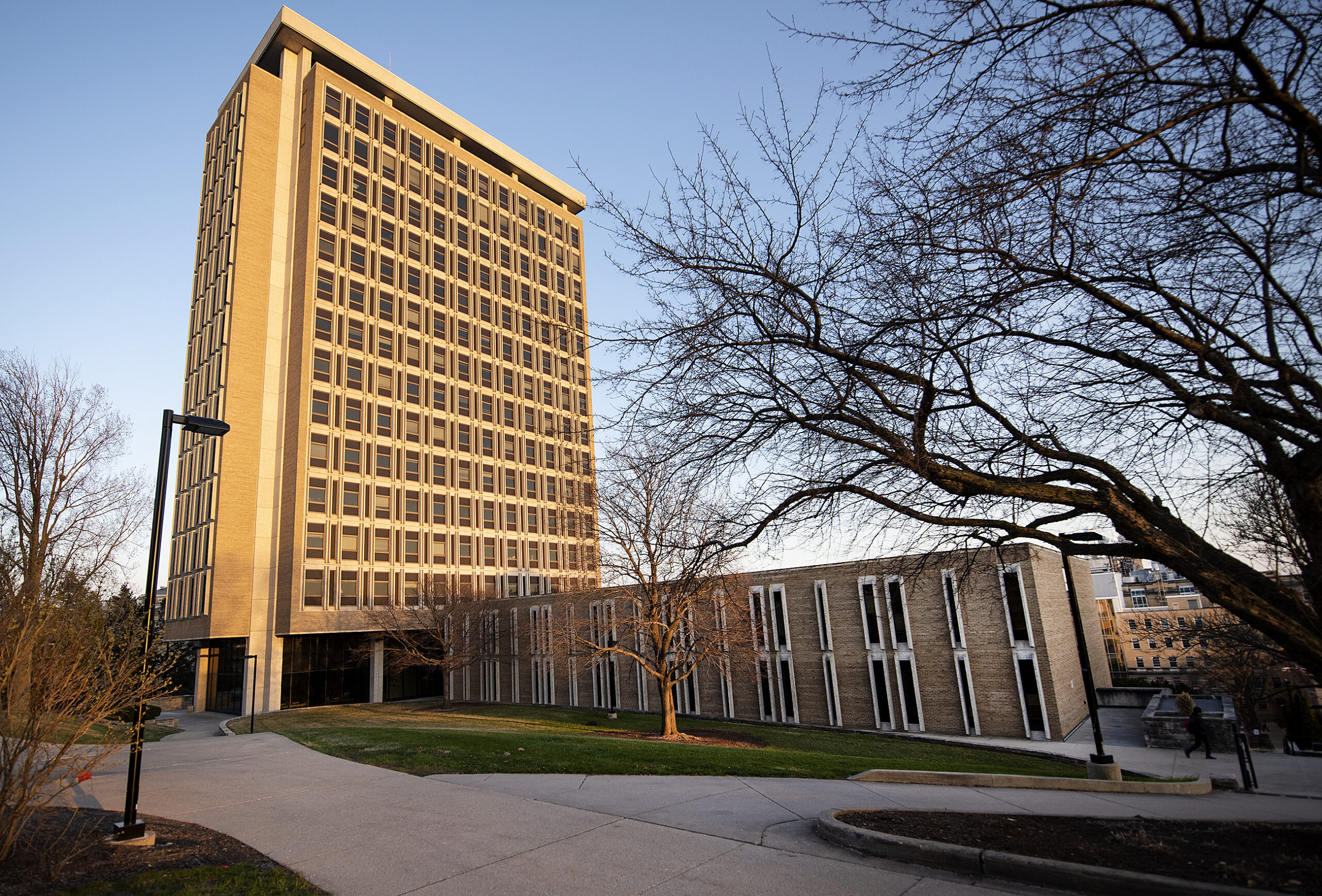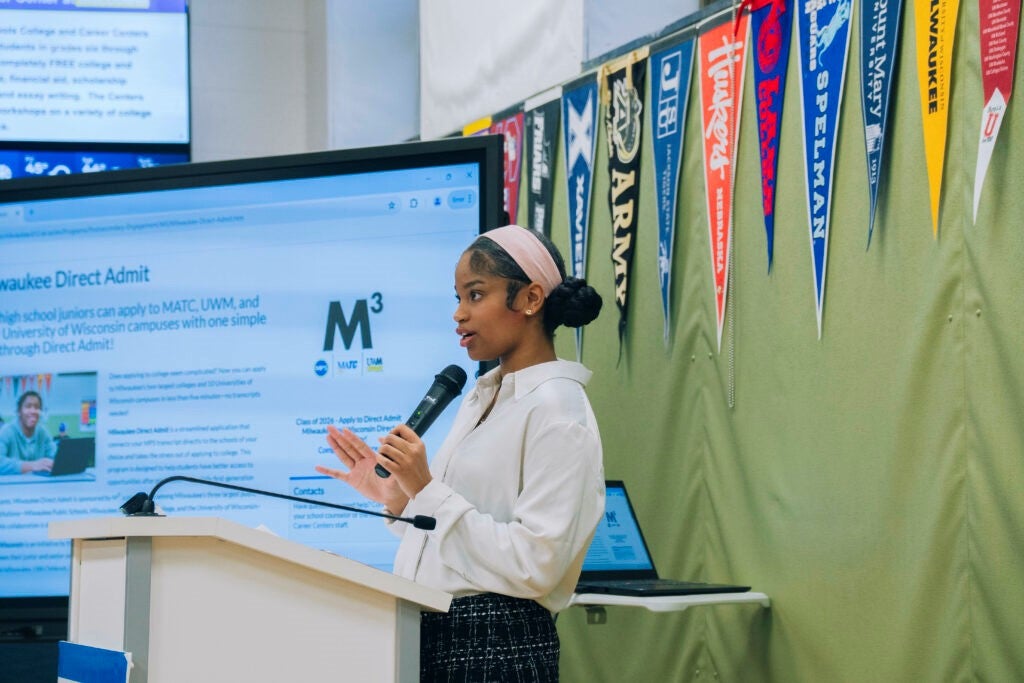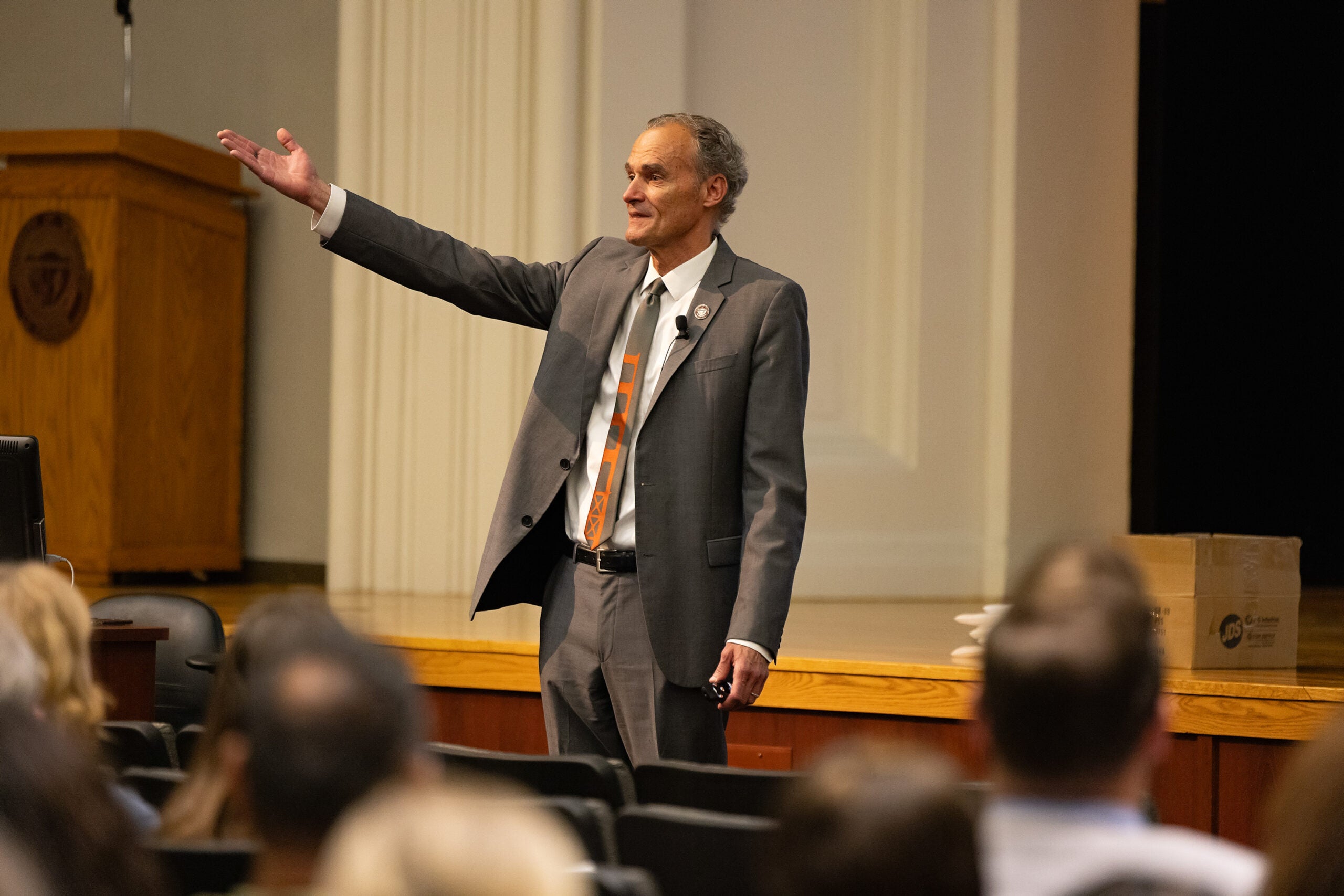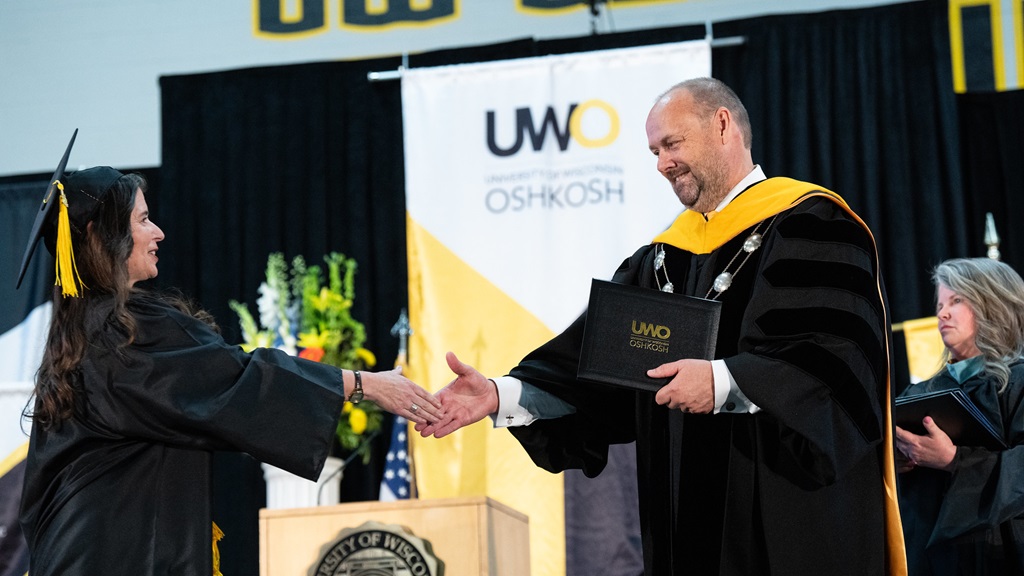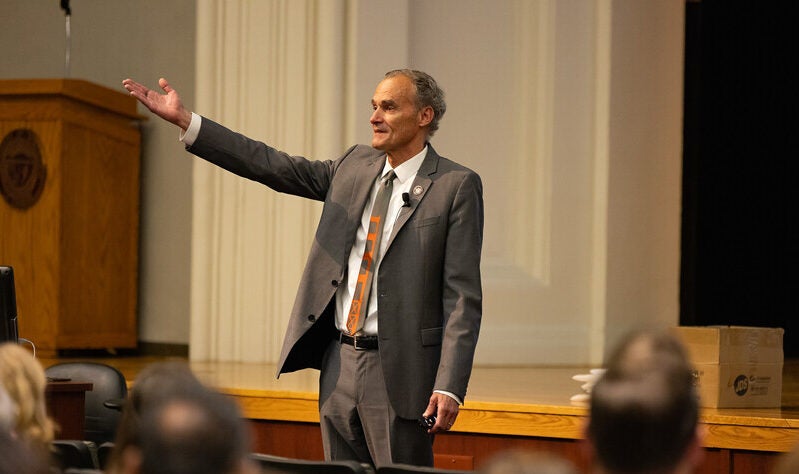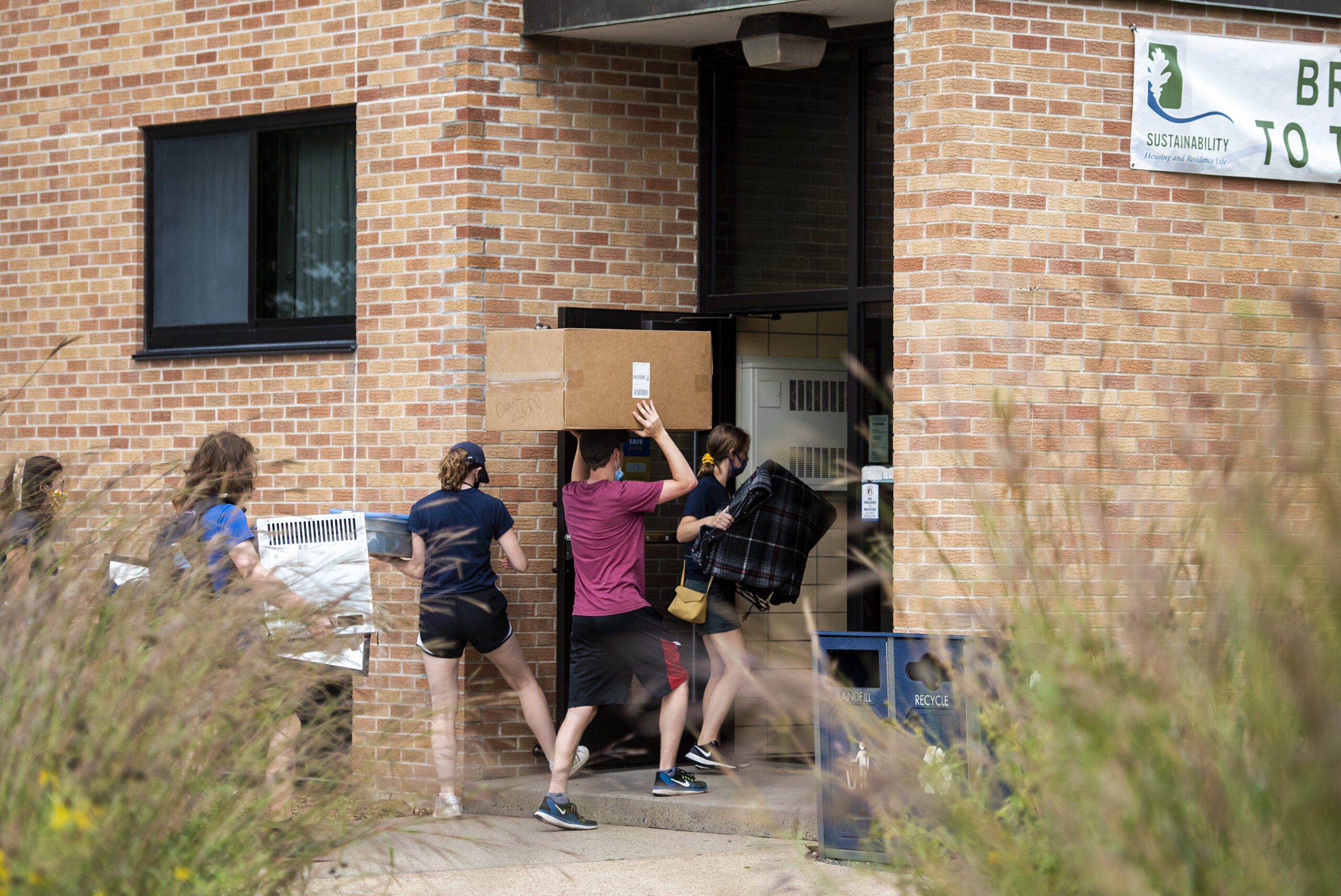Schools in the University of Wisconsin System pledged to return to in-person learning next fall. At a meeting of the UW System Board of Regents on Thursday, individual school chancellors gave more details about what that will look like.
Schools will return their residence halls to their pre-pandemic density of students, and bring back meal plans in their traditional form.
“Our campus will look more like the fall of 2019 than the fall of 2020,” said UW-Parkside Chancellor Deborah Ford.
Stay informed on the latest news
Sign up for WPR’s email newsletter.
At UW-La Crosse, though, Joe Gow noted they have one “offline” residence hall with 100 beds that can be used for quarantine, if needed.
“We will have some remnants of the COVID situation,” said Gow. “Our campus was one of those that did have a surge, I will never forget that day that I looked at those daily test results.”
Ford said UW-Parkside’s residence halls will, likewise, be close to their pre-pandemic capacity, and concert venues and performance halls will be putting on shows again.
UW-Parkside had about 15 percent of its classes online before the pandemic, and has beefed up its virtual options over the past year. Ford said she anticipates about 75 to 80 percent of classes will be in-person in fall 2021.
“We have certainly pivoted a lot in the last year,” she said.
At UW-Platteville, likewise, Chancellor Dennis Shields said some general education classes will continue to be offered partially or fully online.
“Deans, department chairs, everybody’s planning to do as much face-to-face as we possibly can, but they’re also acknowledging the lessons we’ve learned this year about how to deliver hybrid and at a distance,” he said. “For some students, it works for them to take a class online.”
Still, said Shields, all the plans for a more “normal” school year include an ability to pivot in case COVID-19 leads to unexpected challenges for in-person instruction.
“We will be prepared to reverse course if things reverse,” he said.
UW-Parkside plans to rehire its student workforce, after Ford said they had to let the bulk of their student employees go when they couldn’t accommodate in-person work because of the pandemic.
A Focus On Mental Health And Missed Milestones
Wisconsin’s public universities are also planning to acknowledge its students whose traditional milestones were disrupted by the pandemic. Shields said UW-Platteville is planning to invite students who graduated in May 2020, December 2020 and May 2021 back to campus to participate in a future commencement ceremony, likely May 2022.
In addition, the traditional freshman fall orientation in fall 2021 will be not only for next school year’s freshmen, but for those who were freshmen in 2020, when school was still virtual.
UW-Platteville and UW-Parkside are beefing up their summer bridge programs, which typically last a few weeks in the summer between high school and college and are meant to ease students into college. UW-Platteville also partnered with a philanthropic group to incentivize participation, offering a $1,000 scholarship to students who complete the program.
Regent Ashok Rai urged chancellors to be prepared for a very different fall than they had in 2019, noting pandemic effects will last well after positive cases dwindle.
“We keep using the word ‘normal,’ and it’s a good goal, but understand that, especially when I’m referencing this incoming freshman class, it’s no fault of their own or their teachers or their school districts but they will likely come in the least prepared freshman class that you’ve ever seen, on top of that they will come in with the most amount of mental health issues,” he said. “Especially our Black and brown students, because their families experienced the most amount of death in this state.”
All three chancellors emphasized the need to pay attention to students, staff and professors’ social-emotional and mental health needs.
“It is vitally important that our faculty and our staff take time off,” said Ford. “It has been constant, like living in a pressure cooker for 15 months.”
Ford said one of the best moments of the year was when students who had been learning virtually got to see each other in person at commencement. Gow said he’d heard from parents and students that many had felt disconnected from the other students in their classes, and from campus life, and said bringing people together and fostering opportunities to meet and form friendships will be a priority moving forward.
Ford added that some students fell behind academically during the past year, so another priority would be helping them catch up.
“We have to acknowledge the learning loss, for some of the students who just could not adapt to an online enviroment,” she said.
Still, she and the other chancellors said they’re excited to have students mostly back, and mostly in-person, come fall.
“It has been way too quiet on our campus, and I can’t wait for it to be loud, with students, faculty and staff learning together,” she said.
Wisconsin Public Radio, © Copyright 2025, Board of Regents of the University of Wisconsin System and Wisconsin Educational Communications Board.
